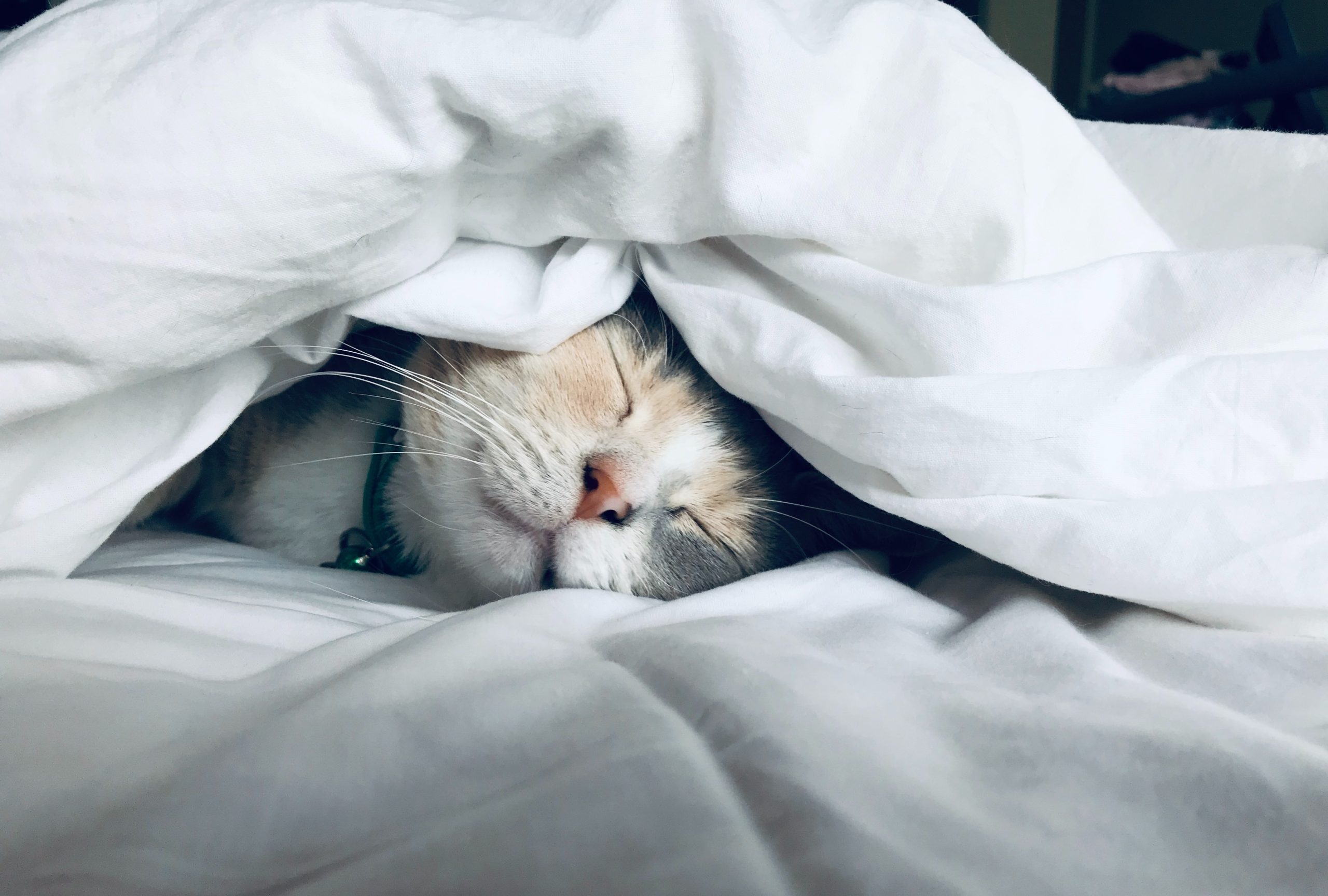One of the most common problems I hear in my training as a psychologist is sleep problems.
People nowadays are either getting fewer hours of sleep or many hours of low-quality sleep.
That is concerning because good, high-quality, deep sleep is the cornerstone of good physical and mental health.
Good sleep improves your brain performance, mood, and health.
Not getting enough quality sleep regularly raises the risk of many diseases and disorders. These range from heart disease and stroke to obesity and dementia.
The modern world we live in today puts forward a lot of barriers for us to achieve good sleep.
Screens are keeping us entertained with a stream of endless content. The internet is filled with absolutely anything our heart desires just a click away. The globalised world means that someone in some part of the world is awake to chat/play games / watch movies with us.
Here are some sleep hacks I’ve learnt over many years of painstakingly optimising my sleep.
1. Stop Working / Doing Mind-Active Things Two Hours Before Bedtime
In my corporate ladder-climbing days, I used to work right up to bedtime.
Being a newly minted manager, my workload was intense. I would spend the whole day at work jumping from one meeting to the next, so it was only after working hours I had the time to make a dent in my pile of responsibilities.
It wreaked havoc on my sleep.
It took me ages to fall asleep because my mind was still abuzz thinking about that Excel spreadsheet.
When I did fall asleep, I would wake up in anxious sweats in the middle of the night. I then found it hard to fall back to sleep and would spend hours tossing and turning in bed until the morning light came.
The next night, the cycle repeats itself. Before long, I was a zombie at work, chugging on coffee to stay awake.
It took me years to finally learn that I needed to give my mind some time to wind down before it was ready for bedtime.
For me, I found that the magic number was two hours.
For some of you, it might be less. Maybe one hour, or even half an hour.
During that time, take the load off your mind and do something relaxing. Take a hot shower. Watch a light show on Netflix. Read a book. Give yourself a foot massage.
Reclaim those last hours before bedtime for self-care.
2. Go to Bed The Same Time Every Night
The advent of electricity has allowed humans to light up our living spaces overnight.
This was an unprecedented moment in human history. Before electricity, our sleep-wake cycle was naturally aligned to the sun. We sleep when the sun is down, and we are awake when the sun is up. As simple as that.
Science found a fancy name for it— the circadian rhythm.
See, our biological bodies have not caught up to the discovery of electricity. Our bodies internally still work through the circadian rhythm, which is directly influenced by various environmental cues, such as light, temperature, social activity and exercise.
By going to bed at the same time every night, and waking up at the same time every morning, you send one of those environmental cues to the circadian rhythm, saying “Hey, this is my sleeping pattern!”
By practising this consistently, eventually, the body takes notice and starts clocking in those hours as uncompromisable sleeping hours.
3. Don’t Put Your Phone Next to Your Bed
This was a tough habit for me to break.
For the longest time, my phone was the last thing I saw before sleeping and the first thing I saw when I awoke.
This disrupted my sleep in so many ways.
The light from the screen sent signals to my circadian clock saying that it is still the day. My brain can’t tell if the light is coming from a screen or the sun — it hasn’t developed that capacity yet!
The texting or messages I sent to my friends hyped up the social activity parts of the brain. The message it’s sending to my circadian clock is — it’s time for some socialising, not sleep.
When the phone was just an arm’s reach away, I was tempted to doom-scroll when sleep was a little difficult to come by. Before I know it, it’s been two hours and sleep has further eluded me.
Putting a little distance between you and your phone can do wonders for your sleep. You can start by placing it at a distance where you have to get out of bed to reach it.
Place your charging points further away from your bed. Studies have shown that charging it at least three feet away from your bed can prevent exposure to radio-frequency energy.
4. Sleep in A Cold Room
This was something I recently discovered, thanks to Andrew Huberman.
To those of you who have never heard of Andrew Huberman, he is a neuroscientist from Stanford University who is passionate about using scientific tools to maximise our potential.
“Put simply, our body temperature needs to drop 1–3° to get into sleep.” — Andrew Huberman
According to the National Sleep Foundation, the optimal room temperature for sleep is somewhere between 18C to 22C. Sleeping in a cold room will allow our body temperatures to drop easily, and send a signal to our circadian rhythm that it’s time to sleep.
Unfortunately, I currently reside in a tropical climate, where temperatures rarely drop below 23C at night. So I use air-conditioning to bring the temperature further down to about 20C, and sleep in a duvet to keep myself warm.
I’ve been sleeping like a baby ever since.
5. Don’t Use An Alarm
This sounds a little counterintuitive.
But by using an alarm, you are relegating the responsibility of waking up from your internal body clock to that digital sound-producing box.
Your internal body clock gets lazy.
It starts to depend externally for a time measurement. It doesn’t cultivate the self-awareness that internally knows what time of the day it is.
By training yourself to wake up without an alarm, you are training your body to be aware of the time. You’d be surprised by how well your body does this naturally.
Your body knows when it needs to eat and use the toilet. Why wouldn’t it know when it needs to sleep and wake up?
Besides, waking up to the sound of a blazing alarm is kind of a bummer way to start the day. Its the true definition of “rude awakening”.
6. Get Some Sunlight Early
Another Huberman tip is to get sunlight within the first 10–30 minutes of waking up.
This relates back to sending signals to the circadian clock so it knows what’s up.
Viewing sunlight within the first hours of waking increases early-day cortisol release. A morning spike in cortisol will also positively influence your immune system, metabolism and ability to focus during the day.
He suggests going outside for at least 10 minutes on a sunny day, or 20 minutes on a cloudy day. Face towards the sun and bathe in that natural goodness.
You can go for a walk, do some stretches or light exercises, journalling or eat a light breakfast.
Making these actions into a habit will truly revolutionise your sleep.
And revolutionising your sleep will change your life for the better. You will have more energy for the things you love. You will experience more focus and attention to do your best work. And you will feel like your best self for the people you love.
It truly is the superpower we all need.
This article was originally published on Medium.




